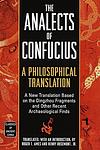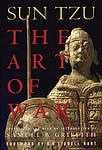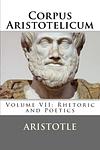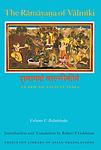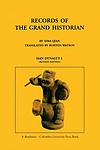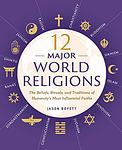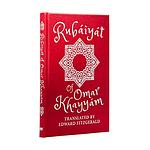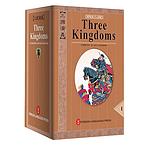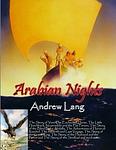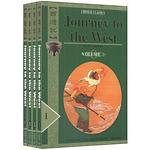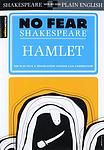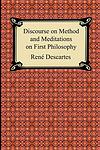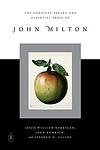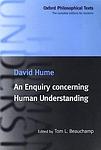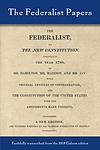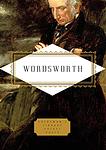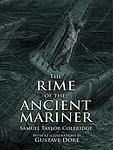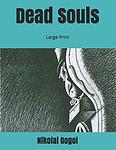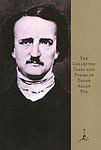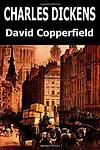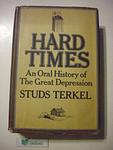The New Lifetime Reading Plan
This is one of the 284 lists we use to generate our main The Greatest Books list.
-
Epic of Gilgamesh by Unknown
This ancient Mesopotamian epic follows the story of Gilgamesh, a demigod king who rules over the city of Uruk. Unhappy with his reign, the gods create a wild man named Enkidu to challenge him. However, Gilgamesh and Enkidu become close friends and embark on several adventures together, including defeating the demon Humbaba and killing the Bull of Heaven. After Enkidu's death, Gilgamesh becomes obsessed with finding immortality, leading him on a journey to meet Utnapishtim, the only human who has been granted eternal life. The narrative explores themes of friendship, mortality, and the meaning of life.
-
The Iliad by Homer
This epic poem focuses on the final weeks of the Trojan War, a conflict between the city of Troy and the Greek city-states. The story explores themes of war, honor, wrath, and divine intervention, with a particular focus on the Greek hero Achilles, whose anger and refusal to fight have devastating consequences. The narrative also delves into the lives of the gods, their relationships with humans, and their influence on the course of events.
-
The Odyssey by Homer
This epic poem follows the Greek hero Odysseus on his journey home after the fall of Troy. It takes Odysseus ten years to reach Ithaca after the ten-year Trojan War. Along the way, he encounters many obstacles including mythical creatures, divine beings, and natural disasters. Meanwhile, back in Ithaca, his wife Penelope and son Telemachus fend off suitors vying for Penelope's hand in marriage, believing Odysseus to be dead. The story concludes with Odysseus's return, his slaughter of the suitors, and his reunion with his family.
-
Analects by Confucius
The Analects is a collection of sayings and teachings attributed to the Chinese philosopher Confucius and his disciples. The book emphasizes the importance of personal and societal morality, filial piety, and the cultivation of knowledge and virtue. Confucius stresses the importance of leading by example and treating others with respect and kindness. The Analects has had a profound impact on Chinese culture and philosophy, and its teachings continue to be studied and applied today.
-
Oresteia by Aeschylus
"Oresteia" is a trilogy of Greek tragedies that tells the story of the House of Atreus. It begins with King Agamemnon's return from the Trojan War and his subsequent murder by his wife, Clytemnestra, and her lover, Aegisthus. The second play focuses on the revenge of their son, Orestes, who kills his mother and her lover to avenge his father's death. The final play deals with the trial of Orestes by the gods for the crime of matricide, resulting in his acquittal and the end of the curse on the House of Atreus. The trilogy explores themes of justice, vengeance, and the intervention of the gods in human affairs.
-
Oedipus the King by Sophocles
"Oedipus the King" is a tragic play that revolves around the life of Oedipus, the king of Thebes, who is prophesied to kill his father and marry his mother. Despite his attempts to avoid this fate, Oedipus unknowingly fulfills the prophecy. When he discovers the truth about his actions, he blinds himself in despair. The play explores themes of fate, free will, and the quest for truth, highlighting the tragic consequences of human hubris and ignorance.
-
Oedipus at Colonus by Sophocles
"Oedipus at Colonus" is a tragic play that follows the final days of Oedipus, the former king of Thebes. Oedipus, now blind and exiled, arrives at the town of Colonus where he is initially rejected due to the curse that follows him. However, after revealing a prophecy that his burial place will bring prosperity to the city that hosts it, he is allowed to stay. The play explores themes of fate, guilt, and redemption, ending with Oedipus's peaceful death and ascension to a semi-divine status.
-
Antigone by Sophocles
This ancient Greek tragedy follows the story of Antigone, a young woman who defies the king's edict in order to bury her brother according to their religious customs. The king, her uncle, sentences her to death for her disobedience, leading to a series of tragic events including his own son's suicide. The play explores themes of loyalty, honor, obedience, and the conflict between the laws of the state and the laws of the gods.
-
Alcestis by Euripides
"Alcestis" is a Greek tragedy that tells the story of a queen who voluntarily chooses to die in place of her husband, the king, when he is fated to die early. The king's friend, Heracles, visits them and, unaware of the queen's death, is offended that he is not being properly entertained. Upon learning the truth, he fights and defeats Death to bring the queen back to life, restoring happiness to the royal household. The play explores themes of love, sacrifice, death, and the power of friendship.
-
Medea by Euripides
"Medea" is a Greek tragedy that tells the story of Medea, a former princess of the "barbarian" kingdom of Colchis, and her husband Jason, who leave her to marry Glauce, the daughter of Creon, king of Corinth. In a fit of rage, Medea decides to take revenge on Jason by killing their children, Jason's new wife, and her father, King Creon. The play explores themes of revenge, women's rights, and the dangers of absolute power.
-
Hippolytus by Euripides
"Hippolytus" is a tragic play that revolves around the themes of lust, revenge, and the wrath of the gods. The story follows the character Hippolytus, a dedicated follower of the goddess Artemis, who spurns the advances of his stepmother Phaedra. In a fit of jealousy, Phaedra falsely accuses Hippolytus of rape, leading his father Theseus to curse him. The resulting divine punishment and misunderstandings lead to the tragic deaths of both Hippolytus and Phaedra, revealing the devastating consequences of deceit and the unforgiving nature of the gods.
-
Trojan Women by Euripides
"Trojan Women" is a tragic play set in the aftermath of the Trojan War, focusing on the fate of the women of Troy. The story follows the mother of Hector, Hecuba, and her daughter-in-law, Andromache, as they grapple with the loss of their city and loved ones. They, along with other women, are destined to become slaves to the victorious Greeks. The narrative explores themes of war, suffering, and the resilience of women in the face of adversity.
-
Electra by Sophocles
"Electra" is a classic Greek tragedy that revolves around the character of Electra and her thirst for revenge. After her father, the king, is murdered by her mother and her mother's lover, Electra and her brother, Orestes, plot to avenge their father's death. The story is a complex exploration of justice, vengeance, and familial duty, depicting Electra's struggle between her desire for revenge and the moral implications of matricide.
-
The Bacchae by Euripides
"The Bacchae" is a classic Greek tragedy where the god Dionysus, disguised as a mortal, returns to his birthplace in Greece to punish the impious King Pentheus who denies Dionysus's divine nature and refuses to worship him. The narrative explores themes of revenge, mortality, and the relationship between man and god. Dionysus uses his power to drive the women of the city into a crazed frenzy, leading to a tragic end for King Pentheus and his mother Agave.
-
The Histories of Herodotus by Herodotus
"The Histories of Herodotus" is an ancient text that provides a comprehensive account of the Greco-Persian Wars. It is often considered the first work of history in Western literature. The author, often referred to as the 'Father of History', provides a narrative that not only discusses the conflicts between the Greeks and Persians, but also delves into the customs, geography, and history of each civilization. This detailed and pioneering work has greatly contributed to our understanding of the ancient world.
-
The History of the Peloponnesian War by Thucydides
This book is a historical account of the Peloponnesian War between the city-states of Athens and Sparta in ancient Greece. The author, an Athenian general, provides a detailed narrative of the war, its causes, and its consequences, offering valuable insights into the political and social dynamics of the time. The work is considered a pioneering piece in the field of history due to its rigorous methodology and critical analysis of events.
-
The Art of War by Sun Zi
This ancient Chinese military treatise, written by a renowned general and military strategist, is a comprehensive guide on military strategy and tactics. It covers various aspects of warfare, from planning and preparation to execution and aftermath. The work emphasizes the importance of understanding one's enemy, using deception, and adapting to changing circumstances. It also stresses the importance of terrain, morale, and leadership. Despite its military focus, its principles have been applied to business, politics, and other fields, making it a timeless classic on strategy.
-
Lysistrata by Aristophanes
"Lysistrata" is a comedic play set in ancient Greece, where the women of Athens, led by the eponymous character, decide to withhold sexual privileges from their husbands and lovers in order to force them to negotiate a peaceful end to the Peloponnesian War. Along with the women of Sparta, they seize the Acropolis and the treasury, and through their non-violent resistance, they manage to bring about a reconciliation between the warring states. The play is a humorous exploration of gender roles and the power of passive resistance.
-
The Clouds by Aristophanes
"The Clouds" is a satirical play that critiques the intellectual and moral corruption of Athenian society by focusing on a father-son relationship. The father, in an effort to evade debt, sends his son to a school of sophistry to learn the art of manipulating language and logic to win arguments. The story explores themes of education, morality, and the conflict between traditional and modern values. The play is well-known for its critical portrayal of Socrates as a sophist and its comedic elements.
-
The Birds by Aristophanes
This ancient Greek comedy play revolves around two men who are fed up with the problems of human society and decide to create a utopian city in the clouds with the help of birds. Their city, 'Cloudcuckooland', becomes popular and attracts gods and humans alike, leading to a series of humorous and satirical events. The play is a satire on political and social life in Athens, poking fun at its democracy, bureaucracy, and warfare.
-
The Complete Works of Plato by Plato
This comprehensive collection compiles the philosophical works of an influential Classical Greek philosopher. The book includes his dialogues, letters, and philosophical musings, exploring topics such as justice, beauty, truth, mathematics, politics, love, and virtue. The philosopher's ideas, including the theory of forms, the allegory of the cave, and the philosopher king, have had a profound impact on Western thought and continue to be studied and debated in modern philosophical and academic circles.
-
Corpus Aristotelicum by Aristotle
The "Corpus Aristotelicum" is a collection of texts by an ancient Greek philosopher, providing an extensive exploration of numerous fields of knowledge, such as metaphysics, ethics, logic, politics, biology, and poetry. These works have been instrumental in shaping Western philosophy and have had a profound influence on a wide range of subjects, including science, theology, and politics. The collection is known for its systematic and logical approach, and for its groundbreaking ideas that continue to stimulate intellectual discourse.
-
Mencius by Mencius
"Mencius" is a philosophical text that presents the teachings and thoughts of Mencius, a follower of Confucius. The book is a compilation of dialogues, anecdotes, and allegories that illustrate Mencius's views on human nature, morality, and political theory. Central to his philosophy is the belief in the inherent goodness of human nature and the importance of cultivating one's moral character. The book also discusses his ideas on proper governance, advocating for a benevolent and virtuous ruler who prioritizes the welfare of the people.
-
Ramayana by Valmiki
The book is an ancient Indian epic poem which follows the journey of Prince Rama as he embarks on a quest to rescue his beloved wife Sita from the clutches of Ravana, the demon king. The narrative explores themes of morality, dharma (duty/righteousness), and the struggle between good and evil. The story is not just about Rama's battle against Ravana, but also his spiritual journey and the importance of upholding one's duties and responsibilities.
-
Mahabharata by Vyasa
The book is an English translation of the ancient Indian epic, originally written in Sanskrit, which tells the story of a great war that took place between two groups of cousins, the Kauravas and the Pandavas. The narrative explores themes of duty, righteousness, and honor while also featuring a rich array of gods, goddesses, and supernatural beings. It is not only a tale of war and conflict, but also a profound philosophical and spiritual treatise, containing the Bhagavad Gita, a sacred text of Hindu philosophy.
-
Records of the Grand Historian by Sima Qian
"Records of the Grand Historian" is an ancient Chinese text that provides a comprehensive history of China, from the earliest times up to the author's own period. The book is divided into five parts: the Basic Annals, the Chronological Tables, the Treatises, the Hereditary Houses, and the Biographies. It covers the lives of significant figures, political events, cultural developments, and much more. The author's objective and critical approach to history has had a profound influence on Chinese historiography and continues to be a valuable resource for understanding ancient Chinese history and culture.
-
De Rerum Natura by Lucretius
"De Rerum Natura" is a long didactic poem written in the first century BC, which explores Epicurean philosophy and the nature of the universe. The text delves into topics such as the nature of the gods, the atomic structure of the universe, human sensation and thought, and the fear of death. The author argues that understanding the physical world can free humans from superstition and fear, leading to peace of mind and true happiness.
-
The Aeneid by Virgil
This epic poem tells the story of Aeneas, a Trojan who travels to Italy, where he becomes the ancestor of the Romans. It includes a series of prophecies about Rome's future and the deeds of heroic individuals, and is divided into two sections, the first illustrating the hero's journey and the second detailing the wars and battles that ensue as Aeneas attempts to establish a new home in Italy. The narrative is deeply imbued with themes of duty, fate, and divine intervention.
-
Meditations by Marcus Aurelius
"Meditations" is a collection of personal writings by a Roman Emperor, providing deep insights into Stoic philosophy. The book is a series of introspective reflections on how to deal with life's challenges with wisdom, integrity, self-discipline, and benevolent affection for all mankind. It serves as a manual for self-improvement and moral guidance, emphasizing the importance of accepting things outside of one's control and maintaining a tranquil mind amidst adversity.
-
Confessions by Augustine
"Confessions" is an autobiographical work by a renowned theologian, in which he outlines his sinful youth and his conversion to Christianity. It is written in the form of a long, introspective prayer directed to God, exploring the author's spiritual journey and deep philosophical ponderings. The book is renowned for its eloquent and deeply personal exploration of faith, making it a cornerstone of Christian theology and Western literature.
-
Meghadūta by Kālidāsa
"Meghadūta" is an ancient Indian Sanskrit poem in which a Yaksha (a nature spirit) sends a message to his distant wife through a cloud, or "meghaduta". The Yaksha has been exiled for a year due to neglecting his duties, and is pining for his beloved. The poem beautifully describes the Yaksha's longing, the journey of the cloud, and the various landscapes, cities, and hermitages it passes over on its way. The cloud is asked to convey the Yaksha's deep love and longing to his wife, providing an evocative exploration of love, longing, and separation.
-
The Quran by Unknown
This book is a compilation of the religious text of Islam, believed by Muslims to be a revelation from God. It is divided into chapters, which are then divided into verses. The text discusses various aspects of life and provides guidance on morality, ethics, law, and personal conduct. It also includes narratives of several prophets, their lives, and their interactions with their communities. The book is considered the ultimate source of spiritual guidance for Muslims worldwide.
-
Platform Sutra by Huineng
The "Platform Sutra" is an essential text in Zen Buddhism, presenting the teachings and philosophy of a renowned sixth patriarch. The book offers deep insights into the nature of enlightenment and the practice of dhyana (meditation). It emphasizes the concept of 'sudden enlightenment', asserting that it can be achieved by realizing one's own 'Buddha nature'. The text is also known for its promotion of direct, personal experience and the potential for enlightenment in all beings, irrespective of their social or educational status.
-
Shahnameh by Ferdowsi
"Shahnameh" is an epic poem that chronicles the history of pre-Islamic Persia, from the creation of the world up until the Islamic conquest of Persia in the 7th century. This literary masterpiece intertwines myth, history, and folklore to tell the stories of legendary kings, heroes, and villains, such as the tragic hero Rostam and the tyrant Zahhak. The narrative also explores themes of love, loss, and moral dilemmas, providing a rich and nuanced portrayal of Persian culture and identity.
-
The Pillow Book by Sei Shōnagon
"The Pillow Book" is a collection of personal observations, anecdotes, and reflections by a woman in the Heian court of Japan. It presents a detailed and vivid picture of court life, including the lavish ceremonies, the rivalries and intrigues, the idle pastimes of the courtiers, and the romantic escapades of the empress and her consorts. The book also contains lists, poetry, and personal musings, providing a unique perspective on the culture and customs of the Heian period.
-
The Tale of Genji by Murasaki Shikibu
"The Tale of Genji" is a classic work of Japanese literature from the 11th century, often considered the world's first novel. The story revolves around the life of Genji, the son of an emperor, exploring his political rise, romantic relationships, and the complex court life of the Heian era. The novel is celebrated for its detailed characterization and its analysis of the different forms of love.
-
Rubaiyat of Omar Khayyam by Edward FitzGerald
"Rubaiyat of Omar Khayyam" is a collection of four-line stanzas, or quatrains, translated from Persian poetry. The poems, filled with contemplations on mortality and the transient nature of life, advocate for living in the moment and enjoying life's simple pleasures. The work is revered for its beautiful and evocative imagery, philosophical musings, and its exploration of themes such as love, faith, doubt, and the fleeting nature of time.
-
The Divine Comedy by Dante Alighieri
In this epic poem, the protagonist embarks on an extraordinary journey through Hell (Inferno), Purgatory (Purgatorio), and Paradise (Paradiso). Guided by the ancient Roman poet Virgil and his beloved Beatrice, he encounters various historical and mythological figures in each realm, witnessing the eternal consequences of earthly sins and virtues. The journey serves as an allegory for the soul's progression towards God, offering profound insights into the nature of good and evil, free will, and divine justice.
-
Romance of the Three Kingdoms by Guanzhong Luo
"Romance of the Three Kingdoms" is a historical novel set in the turbulent years towards the end of the Han dynasty and the Three Kingdoms period in Chinese history, starting in 169 AD and ending with the reunification of the land in 280. The story, part historical, part legend, and part mythical, romanticizes and dramatizes the lives of feudal lords and their retainers, who tried to replace the dwindling Han dynasty or restore it. The novel deals with the plots, personal and military battles, intrigues, and struggles of these states to achieve dominance for almost 100 years.
-
The Canterbury Tales by Geoffrey Chaucer
The Canterbury Tales is a collection of 24 stories that follows a group of pilgrims traveling from London to Canterbury to visit the shrine of Saint Thomas Becket. Told in Middle English, the tales are narrated by a diverse group of pilgrims, including a knight, a miller, a reeve, and a pardoner, who share their stories to pass the time during their journey. The tales, which range from chivalrous romances to bawdy fabliaux, provide a colorful, satirical, and critical portrayal of 14th century English society.
-
One Thousand and One Nights by Unknown
This is a collection of Middle Eastern folk tales compiled during the Islamic Golden Age. The stories are told by a young woman, who must weave a new tale each night for her husband, a king, to delay her execution. The tales are filled with magic, adventure, love, and betrayal, and include well-known stories such as "Aladdin's Wonderful Lamp", "Ali Baba and the Forty Thieves", and "The Seven Voyages of Sinbad the Sailor".
-
The Prince by Niccolo Machiavelli
This classic work of political philosophy provides a pragmatic guide on political leadership and power, arguing that leaders must do whatever necessary to maintain authority and protect their states, even if it means compromising morality and ethics. The book explores various types of principalities, military affairs, the conduct of great leaders, and the virtues a prince should possess. It is known for its controversial thesis, which suggests that the ends justify the means in politics.
-
Gargantua and Pantagruel by Francois Rabelais
"Gargantua and Pantagruel" is a satirical and humorous tale of two giants, Gargantua and his son Pantagruel. The narrative is filled with bawdy humor, wordplay, and grotesque and exaggerated characters, reflecting the realities of 16th-century France. The book is also known for its profound insights on education, religion, and politics, often criticizing the corruption and hypocrisy of the powerful. The novel is a rich blend of fantasy, comedy, and philosophical discourse, making it a classic of Renaissance literature.
-
Journey to the West by Wu Cheng'en
"Journey to the West" is a classic Chinese novel that follows the adventures of a Buddhist monk and his three disciples, a monkey, a pig, and a river monster, as they travel from China to India in search of sacred Buddhist scriptures. Along the way, they face a series of challenges and obstacles, including battling demons and overcoming their own personal weaknesses. This epic tale is a blend of mythology, folklore, and fantasy, and is also a commentary on the practice and principles of Buddhism.
-
Essays by Michel de Montaigne
This collection of essays explores a wide range of topics such as solitude, cannibals, the power of the imagination, the education of children, and the nature of friendship. The author employs a unique and personal approach to philosophy, using anecdotes and personal reflections to illustrate his points. The essays provide a profound insight into human nature and condition, and are considered a significant contribution to both literature and philosophy.
-
Don Quixote by Miguel de Cervantes
This classic novel follows the adventures of a man who, driven mad by reading too many chivalric romances, decides to become a knight-errant and roam the world righting wrongs under the name Don Quixote. Accompanied by his loyal squire, Sancho Panza, he battles windmills he believes to be giants and champions the virtuous lady Dulcinea, who is in reality a simple peasant girl. The book is a richly layered critique of the popular literature of Cervantes' time and a profound exploration of reality and illusion, madness and sanity.
-
First Folio by William Shakespeare
This collection is a compilation of 36 plays by a renowned English playwright, published seven years after his death. It includes comedies, histories, and tragedies, some of which had never been published before. Notable works in the compilation include "Macbeth," "Julius Caesar," "Twelfth Night," "The Tempest," and "As You Like It." The collection is considered one of the most influential books ever published in the English language, as it preserved many of the playwright's works that might have otherwise been lost.
-
The Complete Poetry and Selected Prose of John Donne by John Donne
This book is a comprehensive collection of the renowned metaphysical poet's work, featuring all of his poetry and a selection of his prose. The collection includes his sensual and spiritual poems, satires, elegies, and sermons, showcasing his unique blend of intellect and emotion, wit and wisdom. The book offers readers a deep insight into the poet's complex mind and a thorough understanding of his contributions to 17th-century English literature.
-
The Plum in the Golden Vase by Anonymous
"The Plum in the Golden Vase" is a classic Chinese novel set during the Song Dynasty. It follows the life of Ximen Qing, a corrupt social climber and lustful merchant, who is involved with six different women. The narrative explores themes of sexuality, corruption, and societal decay, providing a detailed and critical examination of the culture and society of the time. The novel is also known for its explicit eroticism and is considered one of the Four Great Classical Novels of Chinese literature.
-
Dialogue Concerning the Two Chief World Systems by Galileo
This scientific work presents a series of discussions between three characters, each representing a different perspective on the cosmological theories of the time. Throughout the dialogue, the characters debate the merits of the Ptolemaic geocentric system, which asserts that the Earth is the center of the universe, and the Copernican heliocentric system, which proposes that the Sun is the center. The author uses these discussions to subtly argue in favor of the Copernican system, challenging the traditional religious and scientific beliefs of his time.
-
Leviathan by Thomas Hobbes
"Leviathan" is a seminal work of political philosophy that presents an argument for a social contract and rule by an absolute sovereign. The author argues that civil peace and social unity are best achieved by the establishment of a commonwealth through social contract. He suggests that without a strong, central authority to impose law and order, society would descend into a state of nature, characterized by perpetual war and chaos. The book is divided into four parts: Of Man, Of Commonwealth, Of a Christian Commonwealth, and Of the Kingdom of Darkness.
-
Discourse on Method by Rene Descartes
The book is a philosophical and autobiographical treatise that introduces a new form of scientific and philosophical method, which emphasizes on doubt and systematic questioning as the primary means to achieve knowledge. The author argues that by doubting everything, one can then rebuild knowledge, piece by piece, on a more solid foundation. This method is applied to a wide range of topics, including God's existence, the nature of the human mind and body, and the acquisition of knowledge.
-
Paradise Lost by John Milton
"Paradise Lost" is an epic poem that explores the biblical story of Adam and Eve's fall from grace in the Garden of Eden. It delves into their temptation by Satan, their subsequent expulsion, and the consequences of their disobedience. The narrative also provides a complex portrayal of Satan as a rebellious angel, who, after being cast out of Heaven, seeks revenge by causing mankind's downfall. The poem is a profound exploration of free will, divine justice, and the human struggle with good and evil.
-
The Complete Poetry and Essential Prose of John Milton by John Milton
This book is a comprehensive collection of the well-known English poet's work, including his complete poetry and essential prose. It provides readers with a deep dive into his profound and influential writings that range from religious and political themes to classic epic literature. The volume also includes his most famous pieces, such as "Paradise Lost", "Paradise Regained", and "Samson Agonistes". The collection is accompanied by detailed notes and commentary, offering insights into the historical and literary context of the works.
-
The Misanthrope by Molière
"The Misanthrope" is a satirical play that explores the hypocrisy and corruption of French aristocratic society through the eyes of the protagonist, a man who insists on absolute honesty and despises flattery, insincerity, and social conventions. Despite his disdain for society, he falls in love with a coquette who embodies everything he detests, leading to a series of comedic and dramatic situations. The narrative ultimately emphasizes the importance of balance between truth and courtesy in social interactions.
-
Pensées by Blaise Pascal
"Pensées" is a collection of philosophical and theological thoughts and ideas by a renowned French mathematician and physicist. The book delves into various aspects of human existence, exploring the nature of faith, reason, and the human condition. It also presents arguments for the existence of God, including the famous wager argument. The book is known for its profound insights into the human experience and its exploration of the complexities of belief and doubt.
-
Pilgrim's Progress by John Bunyan
This Christian allegory follows a man named Christian on his journey from his hometown, the "City of Destruction," to the "Celestial City" on Mount Zion. Christian faces numerous obstacles and temptations along the way, including the Slough of Despond, Vanity Fair, and the Valley of the Shadow of Death. The narrative serves as a metaphor for the believer's journey from sin and despair to salvation and eternal life.
-
Two Treatises of Government by John Locke
"Two Treatises of Government" is a seminal work in political philosophy, which outlines the author's theories on social contract and natural rights. The first treatise refutes the divine rights of kings, arguing that political power does not come from God but from the people. The second treatise introduces the idea of a government that exists to protect the rights of its citizens, particularly life, liberty, and property. The author posits that if a government fails to protect these rights, the people have the right to overthrow it. This work greatly influenced the development of democratic thought and the structure of modern democratic governments.
-
The Narrow Road to the Deep North by Matsuo Bashō
"The Narrow Road to the Deep North" is a travelogue that depicts the author's journey through the remote and desolate northern regions of Japan. The narrative combines prose and haiku poetry to capture the beauty and spirituality of nature, as well as the author's introspective thoughts and philosophical insights. The journey is not just physical but also spiritual, as the author seeks to understand his place in the world and the essence of the human condition.
-
Robinson Crusoe by Daniel Defoe
The book is a classic adventure novel about a man who spends 28 years on a remote tropical island near Trinidad, encountering cannibals, captives, and mutineers before being rescued. The story is noted for its realistic portrayal of the protagonist's physical and psychological development and for its detailed depiction of his attempts to create a life for himself in the wilderness. The novel has been interpreted as an allegory for the development of civilization, as well as a critique of European colonialism.
-
Gulliver's Travels by Jonathan Swift
This classic satire follows the travels of a surgeon and sea captain who embarks on a series of extraordinary voyages. The protagonist first finds himself shipwrecked on an island inhabited by tiny people, later discovers a land of giants, then encounters a society of intelligent horses, and finally lands on a floating island of scientists. Through these bizarre adventures, the novel explores themes of human nature, morality, and society, offering a scathing critique of European culture and the human condition.
-
Candide by Voltaire
"Candide" is a satirical novel that follows the adventures of a young man, Candide, who is living a sheltered life in an Edenic paradise and being indoctrinated with Leibnizian optimism by his mentor. When he is expelled from the paradise for kissing a baron's daughter, he embarks on a journey around the world, witnessing the horrors of war, natural disasters, and human cruelty. Throughout his journey, Candide maintains his optimistic philosophy, despite the constant hardships he faces, ultimately concluding that one must cultivate their own garden, a metaphor for taking control of one's own destiny.
-
An Enquiry Concerning Human Understanding by David Hume
This philosophical work explores the nature of human knowledge, arguing that all of our understanding comes from experience rather than innate ideas. The author challenges the idea of causality, suggesting that our belief in cause and effect is based on habit rather than logical reasoning. The book also discusses the limitations of human understanding, including the inability to fully comprehend the concept of God or the soul, and the impossibility of certain knowledge. The author's skepticism about traditional philosophical concepts has had a significant influence on later philosophers and the field of epistemology.
-
Tom Jones by Henry Fielding
This classic novel tells the story of Tom Jones, a charming and good-hearted but impulsive young man, who is expelled from his adoptive family home due to his wild behavior and love for the beautiful Sophia Western. His journey through 18th-century England is filled with adventures, misadventures, and a colorful cast of characters, as he struggles with his identity and seeks redemption. The narrative explores themes of class, virtue, and morality, and is known for its humor, social satire, and vivid characterization.
-
Dream of the Red Chamber by Cao Xueqin
"Dream of the Red Chamber" is a classic Chinese novel that provides a detailed, episodic record of life in the aristocratic Jia family. The story revolves around the love triangle between the family's heir, his sickly cousin, and his other cousin who is raised to be his wife. It is also a critique of the family's decline and a reflection on the societal norms of the time. The novel is famous for its vivid characterization and psychological depth, and its unique portrayal of Chinese society during the Qing dynasty.
-
The Confessions of Jean-Jacques Rousseau by Jean-Jacques Rousseau
"The Confessions of Jean-Jacques Rousseau" is an autobiographical work by a prominent philosopher of the Enlightenment era, who candidly shares his life story, from his humble beginnings in Geneva to his later years in exile. The book delves into his personal struggles, his intellectual journey, and his relationships, all while exploring his philosophical ideas on education, politics, and morality. The author's introspective narrative provides a unique perspective on his life and times, making it a seminal work in the history of autobiography.
-
Tristram Shandy by Laurence Sterne
The novel is a humorous, rambling narrative that chronicles the life of Tristram Shandy. The story is filled with digressions, anecdotes, and eccentric characters, as Tristram often interrupts his own tale to interject commentary or to recount stories from his family's past. Despite the seemingly haphazard structure, the novel is a clever exploration of narrative form and a satirical critique of traditional biographies and novels.
-
The Life of Samuel Johnson by James Boswell
"The Life of Samuel Johnson" is a comprehensive biography that chronicles the life of one of the most prominent English literary figures of the 18th century. The book provides an in-depth account of Samuel Johnson's life, his literary works, and his significant contribution to English literature. It also offers a detailed portrait of his personality, his relationships, his struggles with depression and illness, and his views on a variety of subjects. The book is as much a biography of Johnson as it is a portrayal of 18th-century England.
-
Basic Documents in American History by Richard Brandon Morris
"Basic Documents in American History" is a comprehensive compilation of significant documents that have shaped the United States throughout its history. The book includes text from vital pieces such as the Declaration of Independence, the Constitution, and landmark Supreme Court decisions. It serves as an invaluable resource for those looking to understand the legal and historical foundations of America, providing direct access to the words that have defined the nation's trajectory.
-
The Federalist Papers by Alexander Hamilton, James Madison, John Jay
"The Federalist Papers" is a collection of 85 articles and essays written to promote the ratification of the United States Constitution. These works discuss the benefits of a stronger national government, the proposed structure of the government, and the division of powers among its various branches. They also address criticisms of the Constitution and detail the failures of the Articles of Confederation. The papers remain a primary source for interpretation of the U.S. Constitution and the intentions of its framers.
-
Faust by Johann Wolfgang von Goethe
The book is a tragic play in two parts that tells the story of a scholarly man named Faust, who becomes dissatisfied with his life and makes a pact with the devil, Mephistopheles. In exchange for unlimited knowledge and worldly pleasures, Faust agrees to give his soul to Mephistopheles after death. The narrative explores themes of ambition, despair, love, and redemption, ultimately leading to Faust's salvation.
-
The Complete Poetry and Prose of William Blake by William Blake
This comprehensive collection features the complete works of a renowned 18th-century English poet and artist, known for his symbolic and critical approach to societal issues. It includes all his prophetic and illuminated poetry, prose, sketches, and illustrations, providing a deep insight into his visionary and revolutionary mind. The book also contains annotations and commentary, making it an invaluable resource for understanding the depth and breadth of the author's philosophical and artistic contributions.
-
The Prelude by William Wordsworth
"The Prelude" is an autobiographical, epic poem that explores the author's spiritual growth and development. The narrative takes the reader through the poet's childhood and youth, his experiences in the French Revolution, and his subsequent disillusionment. It also delves into his relationship with nature, which he sees as a powerful, spiritual force that has shaped his life and consciousness. The poem is a reflection on the poet's personal journey towards understanding his own mind and the world around him.
-
Lyrical Ballads by William Wordsworth, Samuel Taylor Coleridge
"Lyrical Ballads" is a collection of poems that marks the beginning of the English Romantic Movement in literature. The book features a series of poems that blend traditional forms with a direct, realistic style and themes focusing on rural life, the supernatural, and the struggles of common people. It also includes the authors' philosophical reflections on nature, imagination, and the human condition.
-
The Rime of the Ancient Mariner by Samuel Taylor Coleridge
"The Rime of the Ancient Mariner" is a classic English poem that tells the story of a mariner who kills an albatross, bringing bad luck and hardship on himself and his ship's crew. The mariner's journey becomes a spiritual quest as he is forced to confront the consequences of his actions and the nature of redemption. The poem is known for its vivid and imaginative language, including the famous line, "Water, water, everywhere, Nor any drop to drink."
-
The Complete Poems of Samuel Taylor Coleridge by Samuel Coleridge
This book is a comprehensive collection of the works of a renowned English poet, featuring his most famous pieces as well as lesser-known works. The poems are known for their romantic and imaginative style, with themes ranging from nature and the supernatural to human emotion and philosophical musings. The collection offers a deep insight into the poet's creative and intellectual mind, making it a valuable resource for literature enthusiasts and scholars alike.
-
Pride and Prejudice by Jane Austen
Set in early 19th-century England, this classic novel revolves around the lives of the Bennet family, particularly the five unmarried daughters. The narrative explores themes of manners, upbringing, morality, education, and marriage within the society of the landed gentry. It follows the romantic entanglements of Elizabeth Bennet, the second eldest daughter, who is intelligent, lively, and quick-witted, and her tumultuous relationship with the proud, wealthy, and seemingly aloof Mr. Darcy. Their story unfolds as they navigate societal expectations, personal misunderstandings, and their own pride and prejudice.
-
Emma by Jane Austen
The novel revolves around Emma, a well-meaning but disaster-prone matchmaker, who ignores her own romantic feelings while setting out to find a suitor for her friend Harriet. Her efforts cause more problems than solutions as she leaves a trail of mishaps behind her. As her plans go awry, Emma realizes that she herself may be the one in love. The book is a classic exploration of social manners, love, and marriage in 19th-century England.
-
The Red and the Black by Stendhal
The novel is a detailed psychological portrait of Julien Sorel, a young man from a provincial background who aspires to rise above his humble beginnings. He uses his intelligence and hypocrisy to advance in the post-Napoleonic French society, which is deeply divided by class and political loyalties. The story is a critique of the society's materialism and hypocrisy as Julien's ambitions lead him to a tragic end. The title refers to the contrasting uniforms of the army and the church, the two routes available to him for upward mobility.
-
Father Goriot by Honoré de Balzac
"Father Goriot" is a classic French novel that explores the themes of wealth, power, love, and social status in 19th century Paris. The narrative follows the lives of three main characters: a young, ambitious law student who seeks to rise above his modest background; an elderly, once-wealthy man who has sacrificed everything for his two ungrateful daughters; and a crafty, ruthless criminal who manipulates others for his own gain. Their stories intertwine in a boarding house, revealing the harsh realities of Parisian society and the destructive power of unchecked ambition and selfishness.
-
Eugenie Grandet by Honoré de Balzac
"Eugenie Grandet" is a classic French novel that explores the life of a wealthy and miserly provincial businessman and his daughter, Eugenie. The father's obsession with wealth and his refusal to spend any of it leads to a life of hardship for Eugenie, who is in love with her penniless cousin. The novel delves into themes of wealth, love, sacrifice, and the complexities of human nature, shedding light on the oppressive social norms of 19th-century French provincial life.
-
The Essential Writings of Ralph Waldo Emerson by Ralph Waldo Emerson
This book is a comprehensive collection of works by a renowned American philosopher and poet. It includes his most influential essays, lectures, and poetry, providing readers with a deep insight into his thoughts on nature, self-reliance, love, friendship, freedom, and the importance of intellectual independence. The book serves as a guide to the author's transcendental philosophy and his belief in individualism, nonconformity, and the inherent goodness of man and nature.
-
The Scarlet Letter by Nathaniel Hawthorne
Set in 17th-century Puritan Boston, this novel tells the story of a woman who conceives a daughter through an affair and struggles to create a new life of repentance and dignity. She is forced to wear a scarlet "A" on her dress as a sign of her adultery while her lover, a revered local minister, remains unnamed and unpunished. Throughout the book, themes of sin, legalism, and guilt are explored.
-
Twice-Told Tales by Nathaniel Hawthorne
This book is a collection of short stories that delve into the complexities of human nature and society, often through the lens of New England Puritanism. The tales are characterized by their allegorical nature, moral lessons, and exploration of themes such as sin, guilt, and pride. The author's keen understanding of the human psyche and his ability to weave intricate narratives make this an engaging read.
-
Democracy in America by Alexis de Tocqueville
This influential book offers an in-depth analysis of the strengths and weaknesses of 19th century American democracy. The author, a French political thinker, provides a detailed examination of the democratic process and its impact on society, politics, and the economy. The work highlights the importance of civil society, local institutions, and the spirit of equality in ensuring the stability of democracy. It also delves into the dangers of majority tyranny, the potential for democratic despotism, and the critical role of religion and morality in sustaining a democratic nation.
-
On Liberty by John Stuart Mill
This influential philosophical work explores the concept of personal freedom and societal limits, arguing that individuals should have the right to act as they want, provided they do not harm others. The book elaborates on the nature and limits of the power that can be legitimately exercised by society over the individual, and champions individuality and nonconformity. It also discusses freedom of speech, asserting that all opinions should be openly expressed to prevent any single viewpoint from becoming dogma.
-
The Subjection of Women by John Stuart Mill
"The Subjection of Women" is a seminal work that advocates for gender equality and women's rights. The book argues against the social and legal subordination of women to men, challenging the widely held belief that it's natural, inevitable, and beneficial. The author posits that women should be given the same rights as men, including voting rights and the opportunity to pursue any profession. He further argues that society would greatly benefit from the intellectual contributions of women if they were allowed to participate fully in all areas of public life.
-
The Voyage of the Beagle by Charles Darwin
This book is a vivid and exciting travel memoir as well as a detailed scientific field journal covering biology, geology, and anthropology that demonstrates the author’s keen powers of observation, written at a time when Western Europeans were still discovering and exploring much of the rest of the world. The author's five-year journey took him from the coasts of South America, Australia, and Africa to the South Pacific islands, during which he collected and documented the natural history of these areas. The voyage and the specimens he brought back would later form the basis for his famous theory of evolution.
-
On the Origin of Species by Charles Darwin
This groundbreaking work presents the theory of evolution, asserting that species evolve over generations through a process of natural selection. The book provides a comprehensive explanation of how the diversity of life on Earth developed over millions of years from a common ancestry. It includes detailed observations and arguments to support the idea that species evolve by adapting to their environments, challenging the prevailing belief of the time that species were unchanging parts of a designed hierarchy.
-
Dead Souls by Nikolai Gogol
In this satirical novel, a man travels through Russia buying up the titles to deceased serfs (or "souls") from their naive landowners, under the guise of a get-rich-quick scheme. However, his real plan is to use these "dead souls" to create a phantom estate and secure a massive loan. The story explores the corruption and greed prevalent in 19th-century Russian society and provides a unique perspective on the human condition.
-
The Complete Tales and Poems of Edgar Allan Poe by Edgar Allan Poe
This collection brings together all of the author's most famous works, including poems, short stories, and novellas. Known for his macabre and gothic storytelling, the author's works are filled with themes of death, love lost, and human frailty. Notable inclusions are the haunting poem "The Raven," the chilling stories "The Tell-Tale Heart" and "The Fall of the House of Usher," and his only complete novel, "The Narrative of Arthur Gordon Pym."
-
Vanity Fair by William Makepeace Thackeray
This classic novel follows the lives of two contrasting women, the cunning and ruthless Becky Sharp and the sweet and naive Amelia Sedley, against the backdrop of English society during the Napoleonic Wars. The book is a satirical exploration of the obsession with wealth, status, and social climbing, and the moral bankruptcy that can result from such pursuits. The narrative weaves an intricate tale of love, betrayal, and redemption, exposing the vanity and hypocrisy of high society.
-
The Pickwick Papers by Charles Dickens
The book is a humorous and satirical depiction of English society in the 19th century, told through the travels and adventures of a group of gentlemen from London, led by a kind-hearted and naive man. Their escapades take them to various locales where they encounter a plethora of eccentric characters and find themselves in comical and sometimes absurd situations. The narrative is interspersed with tales and anecdotes told by the characters themselves, adding to the richness and diversity of the overall story.
-
David Copperfield by Charles Dickens
This novel follows the life of its titular protagonist from his childhood to maturity. Born to a young widow, David endures a difficult childhood when his mother remarries a harsh and abusive man. After his mother's death, he is sent to a boarding school before being forced into child labor. As he grows, David experiences hardship, love, and loss, all the while meeting a colorful array of characters. The novel is a journey of self-discovery and personal growth, showcasing the harsh realities of 19th-century England.
-
Great Expectations by Charles Dickens
A young orphan boy, living with his cruel older sister and her kind blacksmith husband, has an encounter with an escaped convict that changes his life. Later, he becomes the protégé of a wealthy but reclusive woman and falls in love with her adopted daughter. He then learns that an anonymous benefactor has left him a fortune, leading him to believe that his benefactor is the reclusive woman and that she intends for him to marry her adopted daughter. He moves to London to become a gentleman, but his great expectations are ultimately shattered when he learns the true identity of his benefactor and the reality of his love interest.
-
Hard Times: An Oral History of the Great Depression by Studs Terkel
This book is a compelling oral history of the Great Depression, featuring a collection of interviews from a diverse range of individuals who lived through the era. The interviewees include both the ordinary people and famous figures of the time, from businessmen and politicians to artists and criminals. The book provides a vivid, first-hand account of the economic hardship, social changes, and emotional struggles experienced by people during the 1930s, offering a unique perspective on this significant period in American history.
-
Our Mutual Friend by Charles Dickens
In this classic novel, a complex web of characters is spun around a central plot involving a mysterious inheritance. The narrative explores various themes such as love, greed, social class, and human nature, set against the backdrop of Victorian London. The story unfolds through the lives of numerous characters including a dust contractor, his charming daughter, a lawyer, a teacher, and a couple of greedy, scheming relatives, all of whom are connected by the mysterious fortune left by a deceased man to his estranged son, who is presumed drowned.
-
Little Dorrit by Charles Dickens
"Little Dorrit" is a classic novel that revolves around the life of Amy Dorrit, a young woman who was born and raised in Marshalsea Prison where her father is incarcerated due to debt. The narrative explores themes of imprisonment and freedom, wealth and poverty, as well as social criticism of Victorian England. As Amy navigates her life in and out of the prison, her journey intertwines with that of Arthur Clennam, a man who returns to England after his father's death and becomes determined to solve a family mystery that involves the Dorrits.
-
The Warden by Anthony Trollope
The novel presents the moral dilemma of Reverend Septimus Harding, who finds himself at the center of a legal and moral controversy. He serves as the warden of Hiram's Hospital, an almshouse supported by a medieval charitable bequest. When the legitimacy of his income from a charity is questioned, he must decide whether to keep his comfortable position at the possible cost of his integrity. The novel explores themes of power, greed, and morality.
-
The Last Chronicle of Barset by Anthony Trollope
The novel is the final installment in a series set in the fictional English county of Barsetshire, focusing on a clergyman accused of stealing a cheque, a crime he did not commit. The story explores the scandal's impact on his family and the community, his struggle to maintain his innocence, and the efforts of a local archdeacon to clear his name. The narrative also intertwines several romantic subplots, including the courtship of the clergyman's daughter by a man of higher social status.
The New Lifetime Reading Plan, 202 Books
Clifton Paul "Kip" Fadiman (May 15, 1904 – June 20, 1999) was an American intellectual, author, editor, radio and television personality.
The New Lifetime Reading Plan provides readers with brief, informative and entertaining introductions to more than 130 classics of world literature. From Homer to Hawthorne, Plato to Pascal, and Shakespeare to Solzhenitsyn, the great writers of Western civilization can be found in its pages. In addition, this new edition offers a much broader representation of women authors, such as Charlotte Bront%, Emily Dickinson and Edith Wharton, as well as non-Western writers such as Confucius, Sun-Tzu, Chinua Achebe, Mishima Yukio and many others.
This fourth edition also features a simpler format that arranges the works chronologically in five sections (The Ancient World; 300-1600; 1600-1800; and The 20th Century), making them easier to look up than ever before. It deserves a place in the libraries of all lovers of literature.
This list has a weight of 66%. To learn more about what this means please visit the Rankings page.
Here is a list of what is decreasing the importance of this list:
- Voters: 2 people voted
If you think this is incorrect please e-mail us at [email protected].



